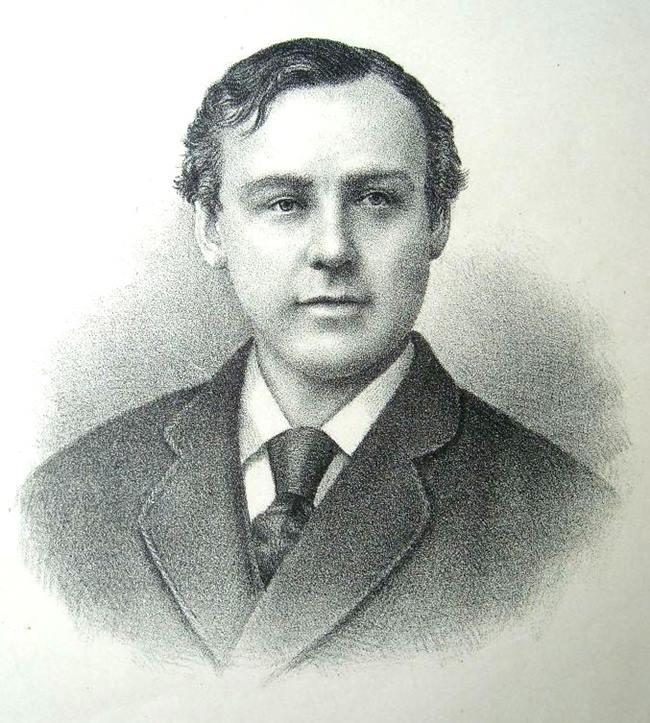
You can probably sing that famous line even though the song was written before you were born – and probably before your parents were born. The song has an interesting tale behind it. For a start, the words were not written at twilight but at four o’clock in the morning. The insomniac writer was one Graham Clifton Bingham, the son of a Bristol bookseller. He was a prolific writer with 1,650 song lyrics to his name. Just a song at Twilight is the opening line of the chorus to a song called Love’s Old Sweet Song which was published in 1884 with music by the Irish composer James Lynam Molloy. Some of Molloy’s music became so popular in the early 20th century that it gained almost folksong status. He wrote still-famous Kerry Dance in 1879.
Love’s Old Sweet Song was extremely popular during the 1890s when the Gilbert and Sullivan operas were all the rage, especially in London. In 1898 The Gondoliers was premiered at the Savoy Theatre, running for over five hundred performances. It includes a song entitled When a Merry Maiden Marries and the opening bars bear more than a striking resemblance to Love’s Old Sweet Song. When Sir Arthur Sullivan was accused of stealing part of James Molloy’s melody, he denied it with the famous response, “We had only eight notes between us”.
Puccini’s opera Madame Butterfly has an even more interesting background. The story is somewhat convoluted and I shall try to keep it short. So please sit up straight and try and look as though you’re interested. In 1887 a semi-autobiographical French novel appeared, entitled Madame Chrysanthème written by Pierre Loti, the pseudonym of Louis Marie-Julien Viaud who was a French naval officer and novelist, known for his stories set in exotic places. The novel told the story of a naval officer who was temporarily married to a Japanese girl while he was stationed in Nagasaki. The plot was based on the true-life diaries kept by the author. The novel came to the attention of the French composer André Messager who used it as the basis for an opera of the same name, first performed in Paris in 1893.
Meanwhile across the Atlantic, an American lawyer and writer named John Luther Long published a short story entitled Madame Butterfly. It was also based partly on the Pierre Loti novel and on the recollections of his sister who had been to Japan with her husband. The American playwright and theatre producer David Belasco adapted Long’s story as a one-act play entitled Madame Butterfly: A Tragedy of Japan. After its first run in New York in 1900 the play moved to London where by chance was seen by the Italian composer Puccini who decided that it would make a good opera and arranged for an Italian libretto to be written. Four years later, Puccini’s Madama Butterfly was premiered at La Scala in Milan. Unfortunately, it was not particularly successful, largely due to inadequate rehearsal time. The composer revised the work five times and his final version of 1907 is the one that’s performed today. It has become one of the world’s most popular operas: the tragic love affair and marriage of a naive young Japanese girl to a thoughtless and callous American playboy Naval Officer.
The Humming Chorus is a wordless, melancholy tune heard from off-stage at the end of Act 2 when the Japanese girl Cio-Cio-San (Butterfly), her child and her servant Suzuki are waiting at home one evening for the return of the American husband whose ship has just in the harbour. They are unaware of the devastating news and subsequent tragedy that is about to unfold.
Delius is one of those composers whose musical language you can usually recognise within seconds. In 1911 he composed two short tone-poems for chamber orchestra, the first one being his more well-known On Hearing the First Cuckoo in Spring. The two pieces were written at the Delius house in the French village of Grez, near Fontainebleau. The garden faced the small River Loing where Delius spent many hours in contemplation. This river was the inspiration for the lilting music of Summer Night on the River. Delius was gifted at creating a sense of atmosphere in his music and in this piece the vague, water-colour harmonies create an impressionistic picture of evening mists settling over the river. You can almost feel the shifting waters, the gentle rocking of small boats, the darkening of the skies and the deepening of the colours.
 |
 |
 |





